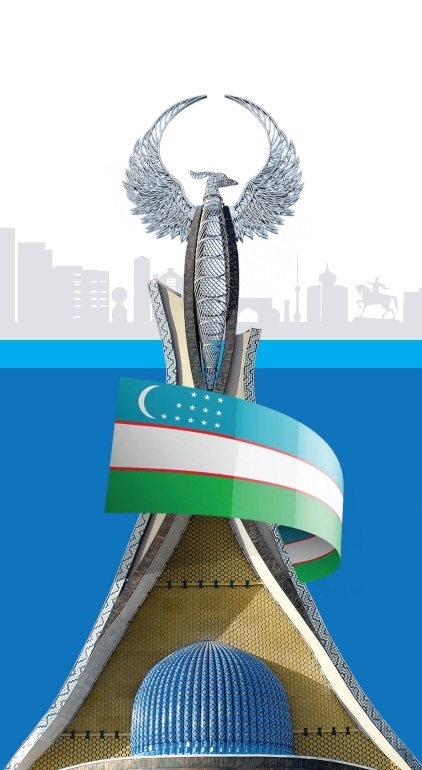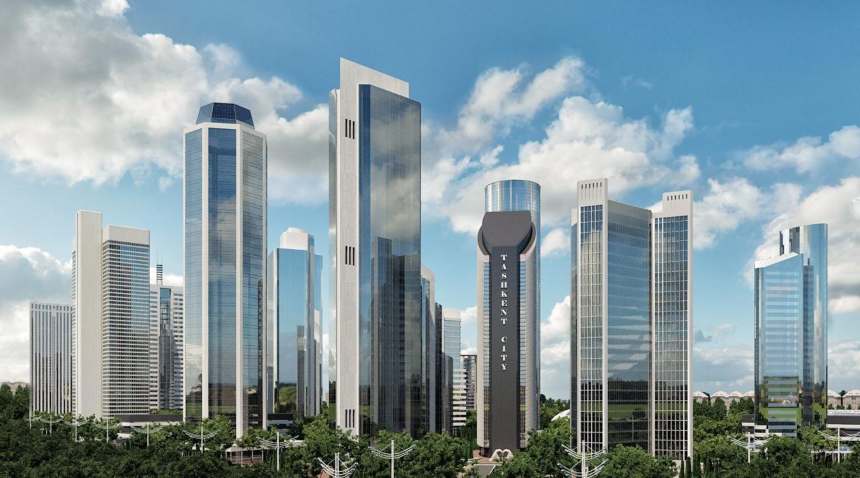By: Trends Editorial Team
Large-scale reforms carried out over the years of independence laid a solid foundation for national statehood and sovereignty, ensuring the rule of law, human rights and freedoms, interethnic harmony, and religious tolerance in society created decent living conditions for the population and the realization of the creative potential of citizens.
In order to a radical increase the effectiveness of the reforms, create conditions for the comprehensive and accelerated development of the state, implement priority directions for the modernization of the country, and liberalize all spheres of life, an Action Strategy was adopted in five areas of development of the Republic of Uzbekistan in 2017–2021.
The Strategy was divided into five areas which included such important areas as state and public building, the rule of law, the development of the economy, the social sphere, as well as security and the implementation of a mutually beneficial and constructive foreign policy. In total, within the framework of the Action Strategy over the past period, about 300 laws and over 4000 decisions of the President of the Republic of Uzbekistan were adopted.
In particular, in terms of the results achieved in the field of improving the system of state and public building, it should be noted that in 2017 the Virtual and People’s reception rooms of the president were created. Over the five years of the Action Strategy, more than 5 million 780 thousand applications received by the virtual reception of the president and People’s Receptions have been considered, of which more than 3 million 288 thousand have been satisfied. The practice of the annual Address of the head of state to the Oliy Majlis – the parliament of the country was introduced, as well as the reform of the system of state authorities and administration.
In addition to the meetings of the Legislative Chamber of the Oliy Majlis, the institution of “government hour” was introduced – the hearing of the answers of government members to deputies’ questions. In 2018-2021 particularly, “government hours” were held 30 times, at which 41 members of the government answered questions from deputies. An important point to note is that starting in 2021, hearings are covered on social networks.
In order to ensure the rule of law and further reform of the judicial and legal system, special attention was paid to turning the courts into a “citadel of justice”, including improving the activities of the Supreme Court. In particular, the Supreme Court and the Superior Commercial Court were merged, and the institution of returning criminal cases for additional investigation was abolished. A Judicial Inspectorate has been established to ensure the immunity of judges and prevent corruption.
In 2017–2021, important steps were taken to protect human rights and interests. In particular, the “residence registration” system, which was a painful issue for the country’s population for many years, has been reformed. Also, the procedure for granting citizenship was simplified, which resulted in more than 70 thousand people being granted citizenship from 2018-2021. In the field of ensuring gender equality, more than twenty normative legal acts aimed at comprehensive support of women have been adopted, increasing their role in the management of the state and society. The Commission on Ensuring Gender Equality of the Republic of Uzbekistan was established and the Strategy for achieving gender equality in the country until 2030 was approved.
Regarding the results achieved in the field of development and liberalization of the economy, it should first be noted that the main economic reforms were to ensure macroeconomic stability, reduce inflation, reduce and simplify the tax burden, diversify economic sectors, create a favorable climate for business, improve infrastructure, develop rural economy, economic integration, and digital economy. Due to the reforms carried out in 2017-2021, 23 free economic zones operate in Uzbekistan today. Appropriate benefits and preferences were provided to attract foreign investors to free economic zones.
As a result of the liberalization of foreign trade and the effective use of the export potential of the republic in 2017- 2021, there were practical changes in the foreign trade activities of Uzbekistan. Regarding the fourth priority area – the development of the social sphere – it is important to emphasize that a number of works have been carried out to improve the healthcare system, the Concept for the Development of the Preschool Education System and Higher Education System of the Republic until 2030 have been approved. In 2017-2021, new specialized polyclinics were established in 306 city and district hospitals of the country, as well as 1,200 emergency departments.
Based on feedback from the public and parents, the country has reinstated 11 years of compulsory schooling. In 2017-2021, the number of higher education institutions doubled from 77 to 141, and the admission quota for higher education was tripled and increased to 28 percent. Presidential schools, schools for specially gifted children, schools of creativity and the “School of Temurbekov” have also been created. It should be noted that in order to consistently increase employment and incomes of the population, Monomarkaz LLC was established, which provides services to the unemployed population.
Today, 14 Ishga Markhamat monocenters, 30 vocational training centers, 11 short-term vocational training courses, 136 vocational training centers for the population of the mahalla operate in the region, which is the result of reforms in this area.

In the field of security; interethnic harmony, religious tolerance, the implementation of a balanced, mutually beneficial and constructive foreign policy, great work has also been done and a number of positive results have been achieved. In particular, in order to further strengthen the country’s defense potential, the legal framework of the sphere was improved including the adoption of the Defense Doctrine of the Republic of Uzbekistan. The organizational structure, combat composition, efficiency of the Armed Forces, and the level of equipment of the troops with modern weapons increased by 5 times in 2017-2021.
Due to a fundamentally new approach to ensuring religious tolerance, not only national policy in this area, but also initiatives promoted in the international arena received widespread support from the international community. In particular, in 2018 Uzbekistan was excluded from the list of “countries of particular concern” in the international report on religious freedoms, as a result of regular positive changes, Uzbekistan has been excluded from the list since 2021.
In recent years, approaches to the implementation of measures to counter religious extremism and terrorism in the country have been conceptually revised. The active implementation of preventive and explanatory work among the population is the focus, which is based on the idea of ”enlightenment against ignorance”.
As a result of a carefully thought-out policy to ensure interethnic harmony in the country, mutual understanding between citizens is further strengthened, mechanisms for interethnic and interfaith dialogue are being improved, and the legal and organizational foundations for expanding the freedoms of citizens are being strengthened.

In the field of cooperation with international organizations, it is important to emphasize the initiatives put forward by the president at the sessions of the UN General Assembly (GA) since 2017. The initiatives provided a consultative meeting of the heads of states of Central Asia, an international conference on Afghanistan in Tashkent, and a number of UN General Assembly resolutions were adopted such as “Strengthening regional and international cooperation to ensure peace, stability and sustainable development in the Central Asian region”, “Enlightenment and Religious Tolerance”, “On Declaring the Aral Sea Region as a Zone of Ecological Innovations and Technologies”, and the activities of a multilateral trust fund for ensuring human security in the Aral Sea region under the auspices of the UN have also been established. These achievements are clear evidence of the broad international support for the initiatives promoted by Uzbekistan.
Strengthening relations with the states of Central Asia remained one of the most important tasks in the country’s foreign policy. In particular, an exchange of high-level visits was established with all states of the region having consultative meetings of the heads of state of the five republics. As a result of strengthening an open and trusting political dialogue between the heads of the Central Asian states, a solution was found to many complex problems, such as the use of water resources, transport communications, border crossing, delimitation, and demarcation of border areas. In 2017–2021, the process of delimitation of the state border of the Republic of Uzbekistan accelerated sharply. By 2021, the delimitation of the border as a whole reached 95.5%, where the Uzbek-Tajik border by more than 99% and the Uzbek-Kyrgyz border by more than 80%, had been carried out.
Trade, economic, industrial and production ties with neighboring countries began to develop consistently. Over the period 2017-2021, the total volume of trade with the countries of Central Asia more than doubled from 2.7 billion USD to 6.3 billion USD.
Over the first five years, the President of the Republic of Uzbekistan, Sh.M. Mirziyoyev has significantly changed the country, turning it into one of the most open and dynamically developing not only in Central Asia, but also in the whole world.
Also Read: UZBEKISTAN-IRAN: New Dynamics of Development of Relations



One Response